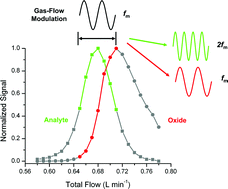Overcoming interferences in inductively coupled plasma mass spectrometryvia gas-flow modulation
Part 1.† Fourier transform methods
Abstract
The first of two new methods for reducing


 Please wait while we load your content...
Please wait while we load your content...